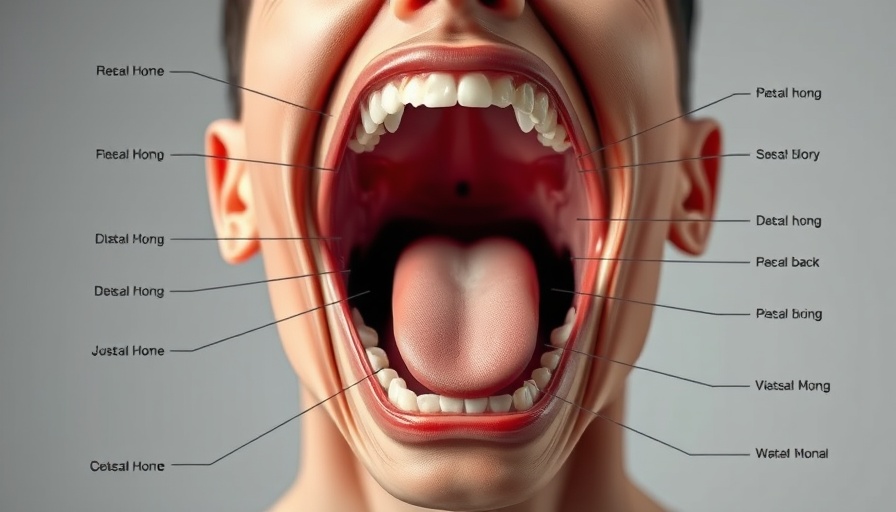
Understanding Mouth Cancer: Why Early Detection is Key
Mouth cancer, along with related conditions such as oropharyngeal cancer, can have life-altering consequences if not detected early. Surprising statistics show that nearly 80% of those diagnosed with oral cancer at an early stage survive for five years or more. In stark contrast, late-stage detection drops survival rates to below 30%. This significant gap highlights why understanding how to check for mouth cancer is not just beneficial but potentially lifesaving.
How to Perform a Self-Examination for Mouth Cancer
Regular self-examinations can play a critical role in detecting early warning signs of mouth cancer. Start by looking for unusual changes in your mouth. This includes checking for:
- Unexplained lumps or swelling in the mouth or neck
- Persistent sores or ulcers that do not heal
- Red or white patches on the gums, tongue, or lining of the mouth
- Changes in the fit of dentures or missing teeth
Additionally, it’s crucial to gently examine your lymph nodes by feeling the sides of your neck. If you discover anything unusual, don’t hesitate to reach out to a healthcare provider for further evaluation.
Common Symptoms to Watch Out For
Aside from visible changes, some symptoms of mouth cancer might include:
- Persistent pain or difficulty swallowing
- Unexplained weight loss
- Changes in your voice or speech
- Bleeding in the mouth without a known cause
Being vigilant and promptly addressing these symptoms can be critical in early detection. Remember, many oral cancers do not exhibit severe symptoms until advanced stages, making self-awareness and proactive health checks essential.
When to Seek Professional Help
While self-exams are valuable, nothing beats the expertise of a dental professional or physician. It’s essential to schedule regular oral health check-ups and communicate any concerns during these visits. If at any point you notice persistent signs or symptoms suggestive of oral cancer, seeking professional evaluation is advised.
The Power of Education in Cancer Prevention
As incidence rates for mouth cancer continue to climb, awareness and education are paramount. Knowing how to conduct a self-exam and recognizing potential warning signs are the first steps toward prevention. Whether through simple home checks or consulting healthcare providers, taking matters into your own hands can significantly improve outcomes.
Related Diagnostic Tests
If symptoms are present, your dentist may recommend additional diagnostic tests. Common methods include:
- CT scans: Useful for providing detailed images of areas affected by cancer.
- Fine needle aspiration: A biopsy technique to gather tissue samples for testing.
These tests can help clarify the nature of any abnormalities and guide subsequent treatment options. Access to these resources can empower patients on their healthcare journey.
Wrapping It Up
With the survival gap starkly illustrated by overwhelming data, the importance of early detection for mouth cancer cannot be overstated. Regular self-exams and professional evaluations can not only enhance awareness but also save lives.
Take charge of your health and prioritize awareness. Engage in self-examination today and encourage loved ones to do the same—it’s a simple step toward a longer, healthier life.
 Add Row
Add Row  Add
Add 




Write A Comment